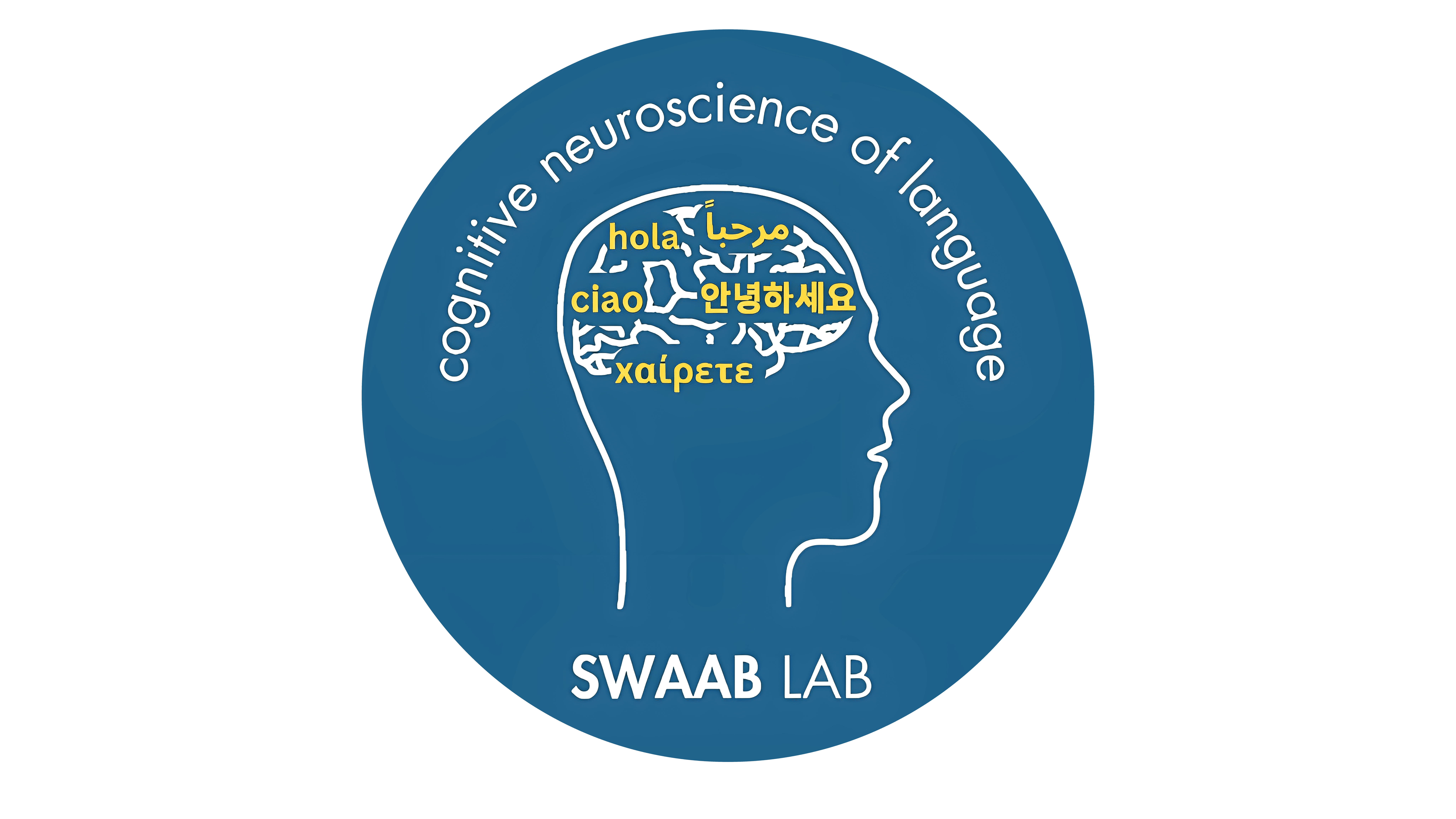Psychological and Neural Mechanisms of Language Comprehension
Our research investigates how the brain uses prediction and control to support real-time language comprehension. We study how listeners and readers anticipate upcoming words, how they resolve uncertainty, and how language understanding is modulated by attention, memory, cognitive control, and language experience. These mechanisms are examined across the lifespan and in monolinguals and bilinguals. Our lab combines electrophysiological methods (EEG/ERP), eyetracking, behavioral measures, and machine learning approaches to reveal the time course, depth, and variability of language processing in the human brain. Our research builds on and contributes to predictive processing frameworks, including experience-based surprisal theory and rational adaptation models, by testing how these theories generalize across populations and linguistic contexts. While earlier work from our lab has made key contributions to understanding syntactic, lexical, and referential processing, the sections below highlight our more recent focus on prediction, control, attention, and memory mechanisms during language comprehension.
- Predictive Processing Across the Lifespan
- A central focus of our work is on the role of prediction in language comprehension. We examine how listeners and readers use context to anticipate upcoming words and how these predictions vary based on task demands, speaker reliability, and individual differences in cognitive control, including working memory maintenance and the ability to switch. In a series of studies, we showed that effects of prediction accuracy occur earlier than effects of plausibility or semantic fit, and that prediction is flexibly modulated by task goals and contextual statistics. We have also demonstrated that age-related changes in prediction are mediated by individual differences in cognitive control, and that brain activity markers such as the 1/f aperiodic slope predict variability in prediction success across individuals and contexts. Our ongoing work suggests that bilingual experience enhances prediction flexibility, and reduces cost related to processing unmet predictions.
- Cognitive Control and Adaptation in Language Comprehension
- Understanding language often requires rapid adaptation to unexpected input. Our studies investigate how cognitive control mechanisms, including proactive and reactive control, help individuals revise or suppress initial interpretations. Using EEG measures such as the late positive component (PNP) and alpha power modulations, we examine how listeners respond when predictions are violated or when referential ambiguity arises. Across studies with neurotypical adults and individuals with schizophrenia, we have found that successful comprehension depends not only on prediction but on the ability to regulate and adapt those predictions in real time. Bilinguals and individuals with high cognitive control are more likely to engage adaptive strategies that support successful language processing.
- Looking Ahead
- Our future work will deepen the integration of prediction, control, and memory processes, with a focus on how these mechanisms vary across individuals, languages, and cognitive contexts. We aim to expand our work with bilingual and aging populations, investigate the neural and behavioral consequences of prediction failure, and use decoding and modeling approaches to better understand the nature and granularity of linguistic predictions. By bridging cognitive theory, electrophysiology, and real-world language diversity, our research seeks to uncover the flexible architecture of the predictive brain.
- Methods and Innovation
- Our lab uses a range of advanced methods to capture the dynamics of language processing. These include ERP components (e.g., N400, PNP), time–frequency analyses of aperiodic activity (1/f slope), multivariate decoding of EEG patterns using support vector machines, and eye-tracking for real-time behavioral insights. We are particularly interested in how these measures reflect the brain's capacity to prepare for, and adapt to, linguistic input.
